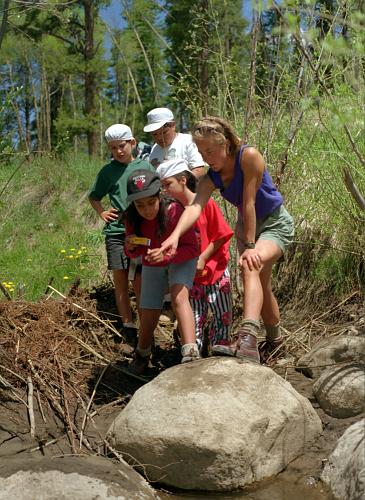|
Learning Not Monopoly Of Schools Laborers were trained to become workers in manufacturing. The material wealth of the industrial nations grew. Now, the industrial age has passed its peak, today we face the need for new forms of economy and society, and radical change to material consumption patterns if social and natural systems are to be sustainable. However future young people are still consigned in the millions to historical time-capsules in the form of state and private schools. From small seeds hugh oak trees grow. Without institutions, without design, without planning and without being noticed, new modes of self-learning are spontaneously self-organizing. From neighborhood day care centers to homeschooling cooperatives, to senior hostels, new clubs and centers are creating the learning opportunies that could grow into a more human and humane learning system. The potential of the out-of-school learning system is in concert with similar trends throughout society. Social philosophers such as Gregory Bateson, Margaret Mead, E.F. Schumacher, Buckminster Fuller, Kirkpatrick Sale, Fritjof Capra, James Lovelock, Jerry Mander, Mark Satin and others have developed firm concepts for the future on critical analysis of the past. Sym Van der Ryn, John and Nancy Todd, Amory and Hunter Lovins, have demonstrated new principles of design that make an environmentally friendly living possible, Rachel Carson, John Muir, Aldo Leopold, Teddy Goldsmith, Wendell Berry, are among those who have added the environmental sector to the transformational movement(s).. Gandhi, Martin Luther King, Robert Muller, and Elise Boulding have been the models for peace activists. While Hazel Henderson, John Daly, Richard Douthwaite, David Korten, and Paul Hawkins, have been among the builders of the new economic planks. And the Rodales, Gene Logsdon, Scott and Helen Nearing, Elliott Coleman, Francis Lappe, and Joan Gussman, have show the potentials of a very differnt food and agricultural system. Such conglomerates of thinkers and activists have been both independent and interdependet in their efforts toward social change. Although each sector of the movement(s) runs its own show, there is a growing recognition that no one part of the culture can change without changing it all. More and more the independent units support one another to bring society a wholistic cultural transformation. Learning institutions are the last to learn new ways. John Dewey, Ivan Illich, John Holt and other educational philosphers have called for a change in the learning sytem. Their leasership was ignored by institutions that are inherently dependent on the state and now on corporate support. But not everybody ignored the Illichs of this world. In the beginning of 1999 a Coaltion for Self-Learning started to take shape on the internet. Few of the participants, spread from Japan to Moscow, from Denmark to India, from American to Australia, have ever met one another face to face. Nevertheless they soon found that they all have a vision of a world without schools -- a world of cooperative lifelong learning communities. Toward the middle of the year the coalition decided to write a book collectively on the Internet. After considerable discussion 30 different authors agreed to write 30 different chapters on themes related to Creating Learning Communities and that title was chosen for the book. Months later the book is rolling off the presses. And the next phase of the project to create learning communities is being developed. The purpose of the Internet project and the hard copy book is to promote mutual aid among the many individuals, organizations, and networks that are creating a new learning system as part of the foundations of a new more natural society. A major goal is to build bridges between the broad array of social change movement(s) and the homeschoolers, autodidacts and other cooperative life-long learning communities who believe that when there is a deep fundamental change in the way future citizens are introduced to society a broad cultural transition will be facilitated. For more information contact points are: TRANET/A Coalition for Self-learning, PO Box 567, Rangeley ME, USA. Email tranet@rangley.org"
|

